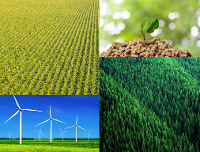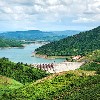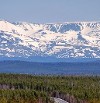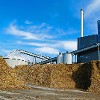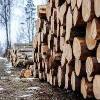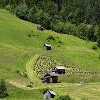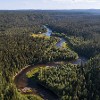Center for Landscape Resilience & Management (CLR)
Biophysical modeling is the simulation of biological systems using mathematical formalizations of the physical properties of the systems. Such models are used to predict and project the influence of biological and physical factors on complex systems and form the basis for any detailed spatially explicit and integrated land use modeling at all scales. Forest and agricultural ecosystems represent a large majority of global land use and hence need particular attention by science which traditionally has been addressed by IIASA’s Ecosystem Services and Management Program (ESM). Over more than a decade, three back-bone models have been developed: a biophysical Global Forestry Model (G4M), a process-based global agricultural model (EPIC), and a techno-economic engineering model for the assessment of renewable energy systems (BeWhere) which is relying to a large extent on information provided by the other two models. ESM’s Center for Landscape Resilience & Management (CLR) is developing and applying this suit of models in a stand-alone or linked cluster to improve risk-resilient and sustainable management of land-based ecosystems by generating impact through policy-relevant research at multiple geographic scales. The center focuses on land-use by forestry, agriculture, the renewable energy sector and the management of other natural ecosystems at landscape level while expanding the Food-Water-Energy Nexus into the urban space.
CLR GROUPS
Forest Ecology and Management (FOR) Group
The FOR research group deals with comprehensive biophysical modeling of forest dynamics and forest ecosystem services in the changing world at different temporal and spatial scale. More
Agro-Environmental Systems (AES) Group
The AES research group seeks to improve our bio-geophysical understanding of the functioning of Agri-Environmental Systems. More
NEWS FLASH

CLR head and ESM deputy director Florian Kraxner serves as guest editor on the Special Issue "Cool Forests at risk? The Critical Role of Boreal and Mountain Ecosystems for People, Bioeconomy, and Climate" in Forests and Open Access Journal (Impact Factor: 2.116) by MDPI.
The special issue covers selected articles from the IBFRA18 Conference, hosted by the International Boreal Forest Research Association (IBFRA), the International Institute for Applied Systems Analysis (IIASA), the Pan-Eurasian Experiment (PEEX), and the International Union of Forest Research Organizations (IUFRO).
Failing to maintain and sustainably manage Cool Forests could put millions of livelihoods and indispensable ecosystems at risk and simultaneously, render the Sustainable Development Goals (SDGs) and likewise the aims of the Paris Agreement unattainable.
The special issues focuses on transdisciplinary articles targeting new insights into a broad array of topics including: Cool Forests and climate change; Risk resilient and sustainable management of Cool Forests to contribute to the SDGs — also bridging to the Food–Water–Energy Nexus; innovative products contributing to a healthy bioeconomy; the generation of relevant new information through monitoring and citizen science; ecosystem services and their protection including forest restoration; forest-based negative emission technologies including afforestation and BECCS; marketing and social aspects; as well as new forest-related strategies and policies, their implementation and impacts.
Image: © forests \ MDPI
Text: adapted from publisher website
AUGUST 2019

Dr. Geza Toth, CEO of SDG Partners Ltd, visited the BeWhere team at IIASA on 7th August 2019.
During the meeting, CLR’S YSSP Tran Hoang Anh, from the University of Science and Technology of Hanoi and Agro Paris Tech, France, presented her summer project. Hoang Anh is adopting the BeWhere model to assess the optimal use of domestic agricultural residues to mitigate the emissions of the Vietnamese coal sector. She adopted future agricultural biomass yields derived from the EPIC model and developed a dynamic BeWhere version. As a funder of Hoang Anh’s stay at IIASA during the summer, Dr. Toth addressed different ways of developing the project further. Moreover, the meeting was also an occasion to discuss future collaboration steps, such as the application of the BeWhere model to derive cost-effective negative emission pathways for Vietnam and south east Asia.
Image: © David Andersson | ECOERA
CLR YSSP students of 2019
Choi, Yuyoung
Research Assistant Ecosystems Services and Management
+43(0) 2236 807 714
García Velásquez, Carlos
Research Assistant Ecosystems Services and Management
+43(0) 2236 807 647
Hu, Xikun
Research Assistant Ecosystems Services and Management
+43(0) 2236 807 656
Liu, Zitong
Research Assistant Ecosystems Services and Management
+43(0) 2236 807 649
Ovsepyan, Lilit
Research Assistant Ecosystems Services and Management
+43(0) 2236 807 648
Pratama, Yoga
Research Assistant Ecosystems Services and Management
+43(0) 2236 807 667
Schulze, Katharina
Research Assistant Ecosystems Services and Management
+43(0) 2236 807 651
Smith, Gabriel
Research Assistant Ecosystems Services and Management
+43(0) 2236 807 713
Tran, Hoang Anh
Research Assistant Ecosystems Services and Management
+43(0) 2236 807 639
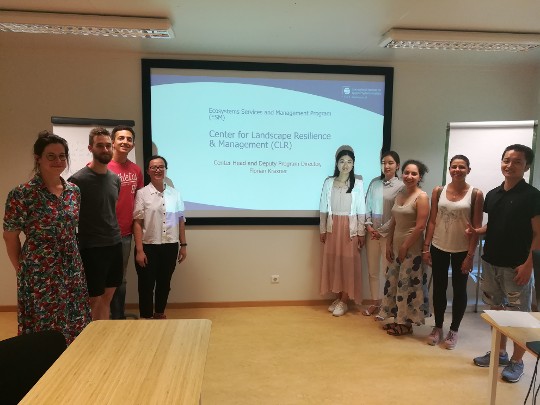
CLR YSSP students 2019
CLR News
Exploring the impacts of climate change on hydropower production
A new study by researchers from IIASA and China investigated the impacts of different levels of global warming on hydropower potential and found that this type of electricity generation benefits more from a 1.5°C than a 2°C climate scenario. More
Crowdsourcing landscape restoration assessment in Indonesia
The Urundata mobile application will allow Indonesians to be more involved in efforts to restore forests and landscapes in the country. Users can contribute by playing games to help interpret satellite imagery and gather information on the ground. More
Assessing the benefits and risks of land-based greenhouse gas removal
IIASA researchers collaborated with colleagues at a number of international institutions to assess the benefits and risks associated with six different land-based greenhouse gas removal options in light of their potential impacts on ecosystems services and the UN Sustainable Development Goals. More
New study maps symbiotic relationships in forests worldwide
Data collected from over 1 million forest plots reveals patterns of where plant roots form symbiotic relationships with fungi and bacteria. The study is the first proof of a new ecological law, and lends new insight into potential climate feedbacks. More
Reducing US coal emissions through biomass and carbon capture would boost employment
Employing bioenergy with carbon capture and storage (BECCS), would not only retain 40,000 jobs currently held as part of the US coal industry but would create 22,000 new jobs in the forestry and transportation sectors by the middle of this century, according to new IIASA-led research. More
IIASA signs MOU with Indonesia’s Institute Teknologi Bandung (ITB)
Researchers, scientists and experts from both sides will participate in the joint research project. IIASA will contribute its expertise on modelling while ITB makes their research Indonesia-specific. More
Biorefineries will have only minimal effects on wood products and feedstocks markets
A new report from researchers from IIASA, Luleå University of Technology (LTU), and RISE Research Institutes of Sweden has shown that more biorefineries, which produce biobased fuels and chemicals, will have only a small effect on the availability and pricing of wood products and feedstocks. More
CLR Events
XXV IUFRO World Congress 2019
A delegation of ESM researchers will participate at the XXV IUFRO World Congress 2019 "Forest Research and Cooperation f... More
RESTORE+ Mid-term meeting
National stakeholders from Brazil, government representatives from Indonesia, as well as representatives of the broader ... More
APCC Special Report on land use, land management and climate change - Kick-off Meeting
IIASA contributes to the APCC Special Report which assembles experts from land-management, land-use including agricultur... More
'Forest Ecosystems of Boreal Zone: Biodiversity, Bioeconomy, Ecological Risks'
IIASA together with the International Boreal Forest Research Association (IBFRA) is co-hosting the All-Russian Science C... More
National Energy Technology Laboratory Annual Meeting
Addressing the Nation’s Energy Needs Through Technology Innovation – 2019 Carbon Capture, Utilization, Storage, and ... More
FAO-UNECE Forest Communicator’s Network – Annual Meeting
Delegations from forty-two member States meet for the annual UNECE/FAO Forest Communicators' Network (FCN) More
Teaserimage credits © Shutterstock| DutchScenery|Lane V. Erickson|Ssuaphotos|FabrikaSimf
CONTACT DETAILS
Research Group Leader and Principal Research Scholar Agriculture, Forestry, and Ecosystem Services Research Group - Biodiversity and Natural Resources Program
Senior Research Scholar Agriculture, Forestry, and Ecosystem Services Research Group - Biodiversity and Natural Resources Program
Senior Research Scholar Agriculture, Forestry, and Ecosystem Services Research Group - Biodiversity and Natural Resources Program
Senior Research Scholar Novel Data Ecosystems for Sustainability Research Group - Advancing Systems Analysis Program
Senior Research Scholar Agriculture, Forestry, and Ecosystem Services Research Group - Biodiversity and Natural Resources Program
PUBLICATIONS


